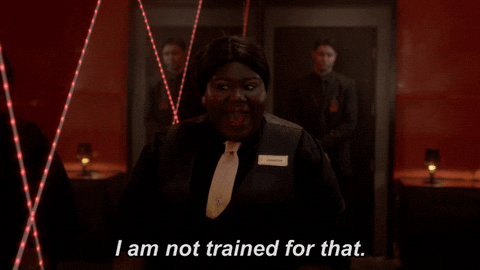You can learn a lot about a job from the job description and the application process. However, if you really want to learn the finer details about a role’s expectations and responsibilities, you need to ask questions during the interview.
There will come a point in the majority of job interviews when the recruiter will ask if you have any questions. The end of the interview is your chance to ask questions that are important to you. It’s your time to interview the company and get more specific details.
Why Ask Questions at the End of the Interview?
Keep in mind that you are assessing the company as a potential employer as much as they are assessing you as a potential candidate. Even if a job seems great on paper, you need to know for sure that you are a good fit for the job and its one you want.
Asking questions at the end of the interview allows you to:
- Address specifics about a job in greater detail
- Learn more about company culture
- Find out more about who you will be working with
- Get more information about the day-to-day aspects of the position
- Circle back and restate important information about why you are the best candidate
Hiring managers and recruiters encourage candidates to ask questions. Most today expect it.
Why Do Hiring Managers Want You to Ask Questions?
Asking questions shows you are engaged and interested in the role. It also communicates that you have done your homework and are willing to dig deeper to find out more information. When you ask specific questions about the company, it proves you are willing to do what it takes to get the job – you’re proactive. It will also give you a leg up on other candidates who don’t ask questions.
If you are a top candidate and you check all the boxes, they’ll be trying to convince you to join the company as much as you want to get hired. Asking questions helps you figure out if they are a company you want to work for. We’ve put together a list of terrific questions to ask your recruiter/hiring manager at the end of your next sales job interview:
1. Can You Walk Me Through a Typical Day?
This is one of the most effective questions to ask to get a detailed overview of what the job would be like on a day-to-day basis. Asking this question will allow you to know what the job really entails. You could learn certain things that you like, don’t like, or didn’t expect from the job. Plus, you will also have a good idea of what to expect on day one if you are hired.
2. Will I Be Working With a Team? Who Is My Direct Supervisor?
This is a very important question to ask. Many job descriptions are vague and leave out some details. Asking this question allows you to get a sense of who you will be working with, how many people, if it’s a team-based environment, and how your role fits with other people around you. It can also give you some insight into who your manager will be, what they are like to work with, and the type of support they will provide your role.
3. How Does Training Work?
Asking about the training and onboarding process will not only give you an idea of the type of training required for the job, but it will also provide you with some insight into how much the company supports its employees. It will let you know if they take training, coaching, and development seriously, if they have a defined program, or if they take an ad hoc approach.
You can also follow up with a question about what will be expected of you within the first 3-6 months in the job. Will your time be focused on training and getting you ramped up or will you be thrown right into the role?
4. How Is Performance Measured? What Metrics Are Used?
This question will give you information about how you will be assessed. You’ll get a better idea of what is expected from you in the job, what type of metrics are used to measure your performance and how you will be supported if you fall short of these performance metrics.
5. How Would You Describe the Company Culture?
You will get a good idea about company culture the minute you walk through the door for your interview, but it’s always good to hear what the company has to say about it. The interviewer can give you an overview of what the culture is, the core values, and what makes their company a great place to work.
To get an even more insider view of company culture, you could follow up and ask what the interviewer personally likes the most about the company.
6. What Opportunities Will I Have for Professional Development?
You want to learn, grow professionally, and have opportunities to further your career. Asking this question will let you know right away if the company has a professional development program in place, if they offer coaching, support continued education, and if you have opportunities to be promoted internally.
7. Is There Anything You Would Like Me to Clarify/Know About?
This question gives the recruiter, and yourself, the opportunity to circle back and follow up on previous answers. They can ask follow-up questions, get clarification about an answer you provided, and you can offer additional information to help the interviewer better assess you. It also gives you the chance to provide any information you forget to mention and allows you to give a final summary of why you are best for the job.
8. What Is the Next Step in the Interview Process?
This is a great question to finish with. It shows you are interested in the job and it will also give you a good idea of expected timelines to hear back from the company.
Prepare Your Questions in Advance – Tips to Keep in Mind
Prepare your list of questions in advance. Research the company, look at the website and review any materials sent to you via email. Create an initial list of questions. Make sure you know the type of information you want to take away from the interview about the company, people, job, and requirement.
Here are some tips to help you prepare your question list:
- More is not necessarily better. Focus on asking quality questions.
- Avoid asking simple yes or no questions.
- Avoid asking questions about salary – this will come up as part of the job offer.
- Don’t ask questions where you can get the information online.
- Not all of the questions you have prepared will flow well with the conversation. Some of your questions may get answered for you.
- Make note of questions that come up during the interview.
- Adjust your questions based on the information.
- Prepare 3-5 solid interview questions.
More Sales Job Interview Tips
Check out these insightful blog posts to get more great advice to prepare for your next sales job interview:
6 Genius Ways to End Your Sales Interview and Leave a Lasting Impression
13 Things to Stop Saying in Sales Interviews If You Want the Job
Sales Interview Not Going as Planned? 4 Ways to Redeem Yourself
So, Here Are, Uhh, Common Crutch Words to Avoid During Sales Interviews
The Top 4 Traits You Should Show Off in Your Next Sales Interview
When Is the Most Socially Acceptable Time to Follow Up Your Sales Interview? (And How to Do It)

Rhys Metler
Rhys is a tenacious, top performing Senior Sales Recruiter with 15+ years of focused experience in the Digital Media, Mobile, Software, Technology and B2B verticals. He has a successful track record of headhunting top performing sales candidates for some of the most exciting brands in North America. He is a Certified Recruitment Specialist (CRS) and has expert experience in prospecting new business, client retention/renewals and managing top performing sales and recruitment teams. Rhys enjoys spending quality time with his wife, son, and daughters, BBQing on a hot summer day and tropical vacations.


